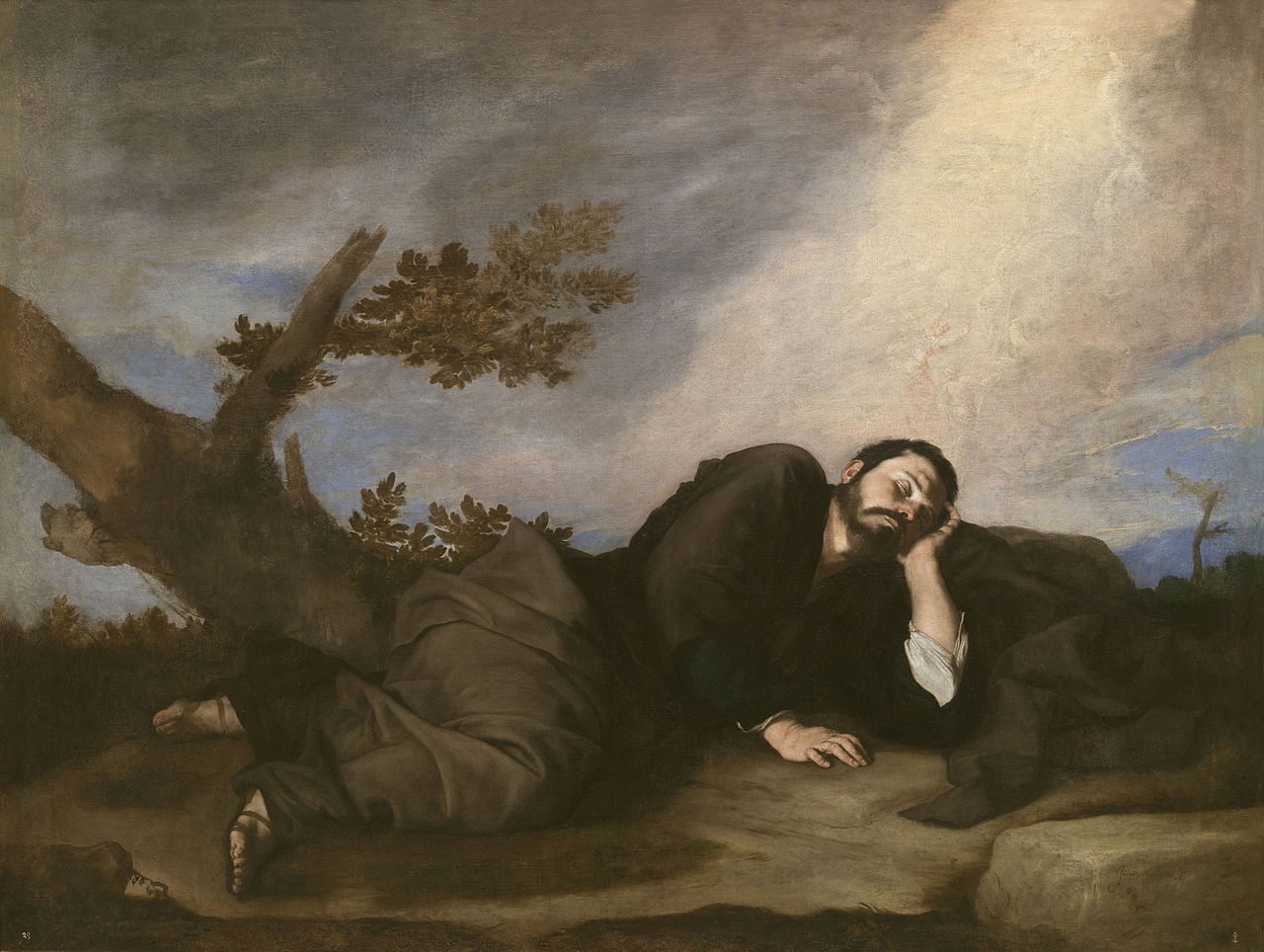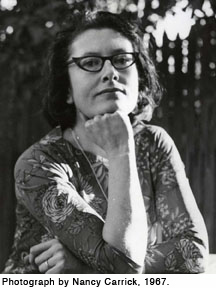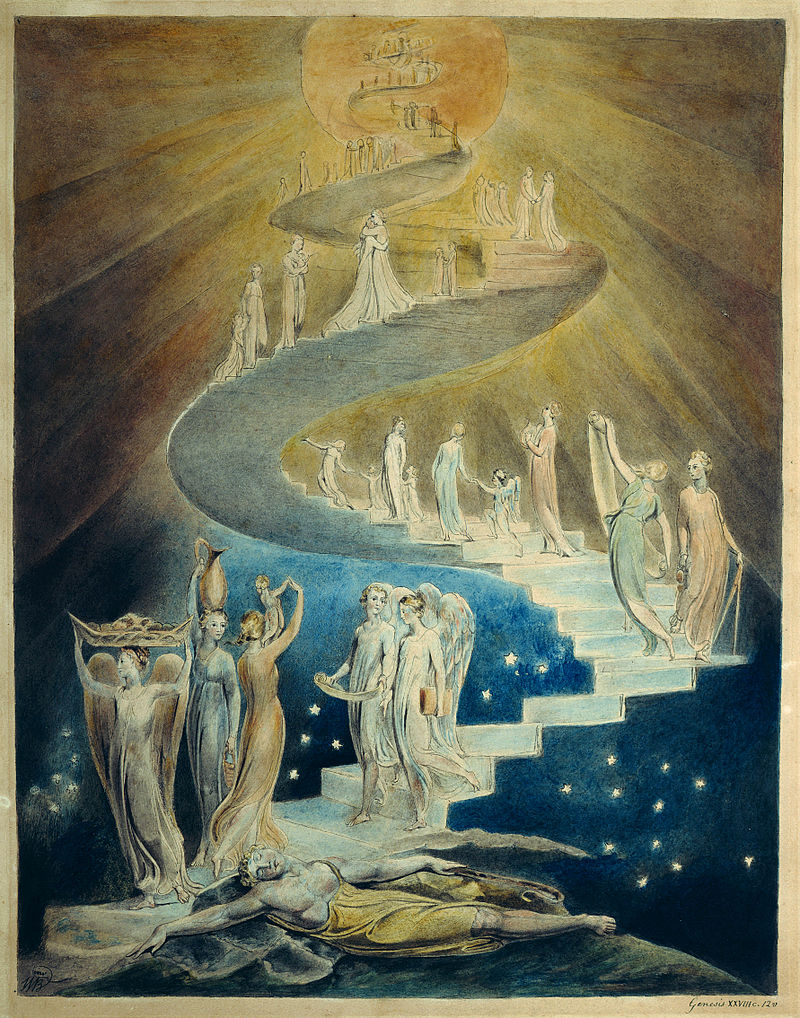|
|
Online Texts for Craig White's Literature Courses
|
|
|
Denise Levertov (1923-1997) The Jacob's Ladder (1961) |
|
Background: "Jacob's Ladder" alludes to a vision by the patriarch Jacob in the first book of the Bible, See illustrations below.
Genesis 28.10 Now Jacob went out from Beersheba and went toward Haran. 11 So he came to a certain place and stayed there all night, because the sun had set. And he took one of the stones of that place and put it at his head, and he lay down in that place to sleep.
12 Then he dreamed, and behold, a ladder was set up on the earth, and its top reached to heaven; and there the angels of God were ascending and descending on it. . . .
![]()
Discussion questions: 1. What's Romantic (or not) about the poem?
2. How or why is lyric poetry a standard genre for Romanticism? (How is a lyric poem particularly suited for expressing Romantic thought?)
3. How may the poem be interpreted as resembling Transcendentalism as well as Romanticism? How may its style be Transcendentalist as distinct from Romantic?
4. Given that the poem is written during the Modern or postmodern era, how may "The Jacob's Ladder" transcend Romanticism and Transcendentalism to become Modern(ist) or something else?
![]()
The Jacob's Ladder*
The stairway is not
a thing of gleaming strands
a radiant evanescence
for angels' feet that only glance in their tread, and
need not touch the stone.
5
It is of stone.
A rosy stone that takes
a glowing tone of softness
only because behind it the sky is a doubtful,
a doubting night gray.
10
A stairway of sharp
angles, solidly built.
One sees that the angels must spring
down from one step to the next, giving a little
lift of the wings:
15
and a man climbing
must scrape his knees, and bring
the grip of his hands into play. The cut stone
consoles his groping feet. Wings brush past him.
The poem ascends.
20
|
|
|

Jusepe de Ribera (1591-1652), Jacob's Dream
(1639)



